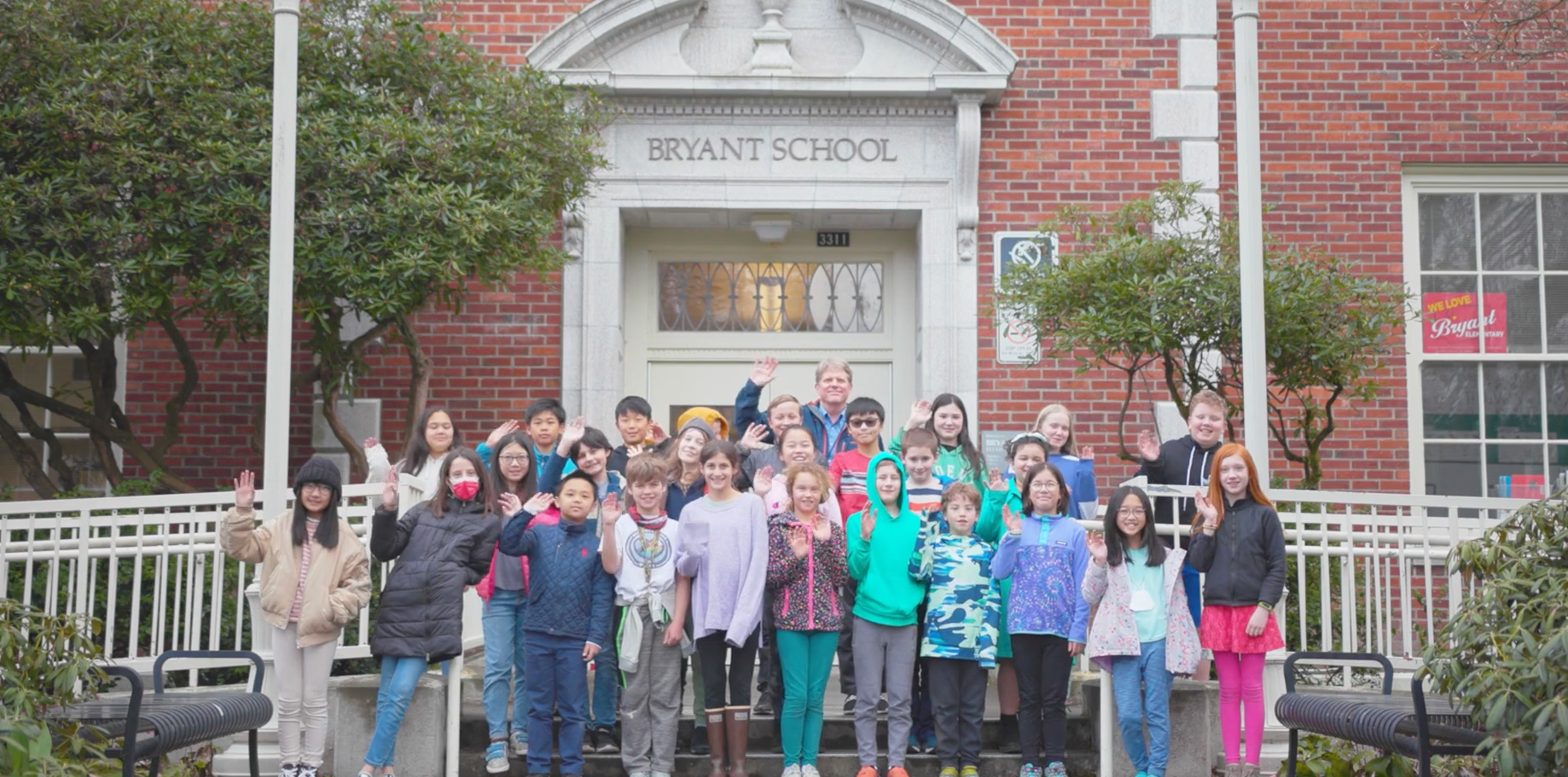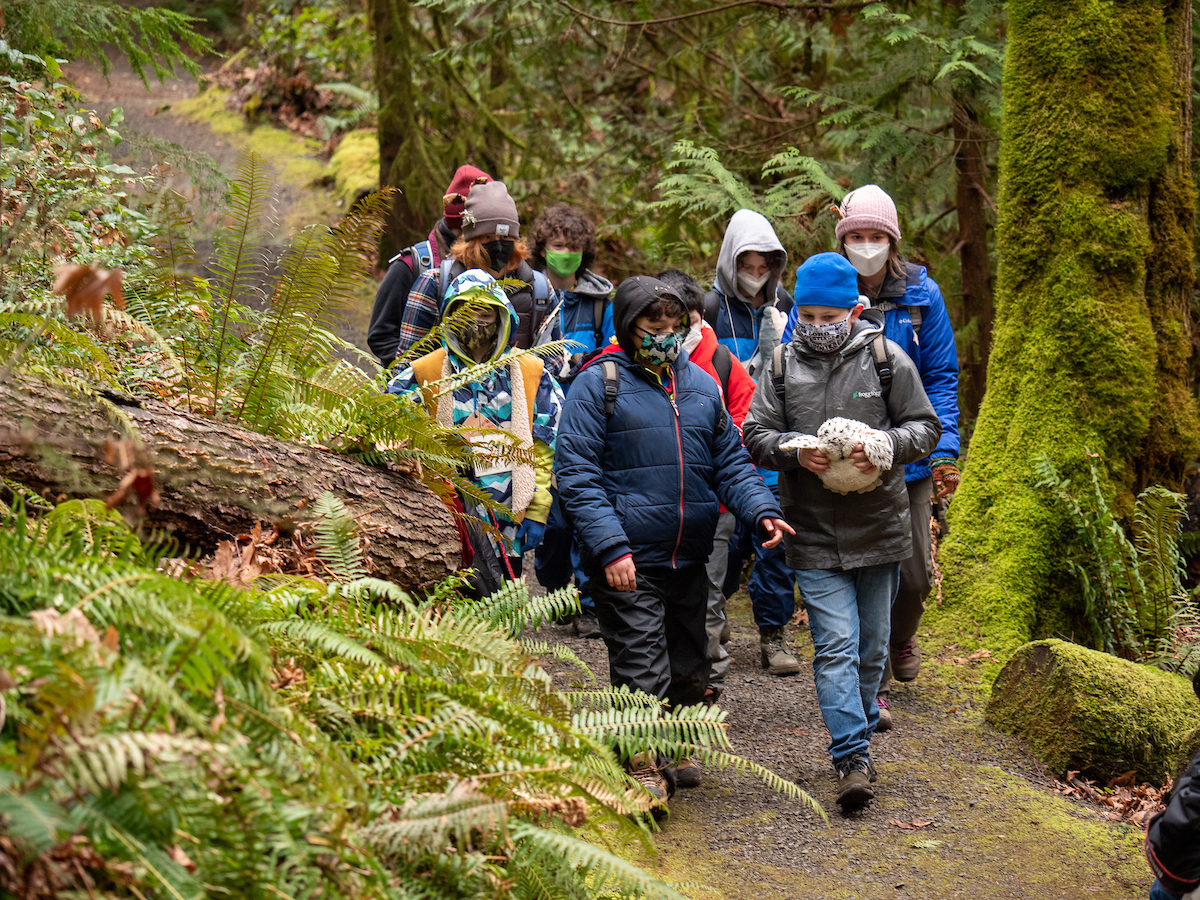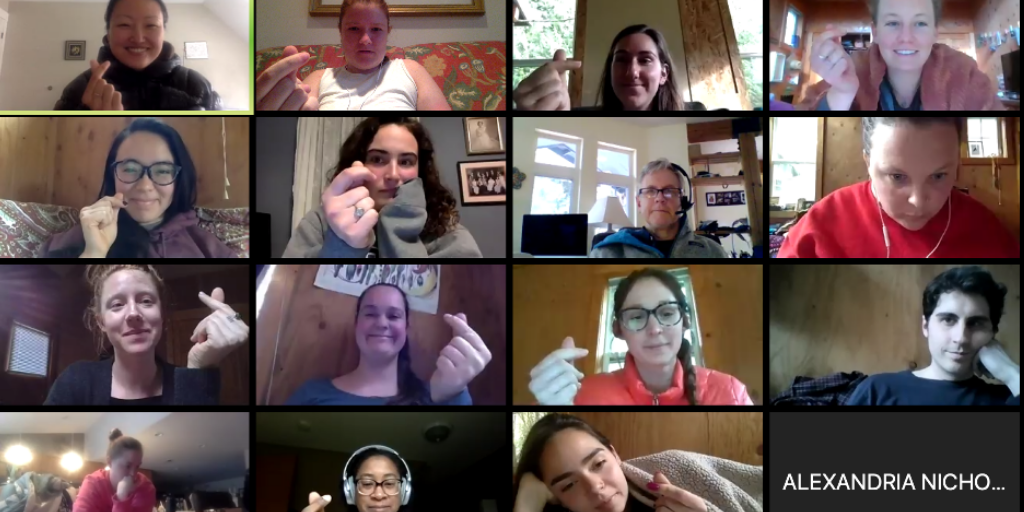Bryant Elementary was one of the schools included in our pilot program of the School…
Written by Mylea Mann, IslandWood Graduate Program class of ’22 and current University of Washington Grad Student
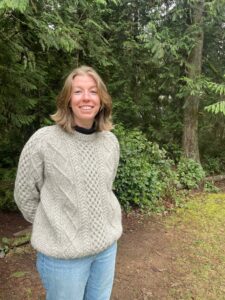
Mylea on our Bainbridge campus in February 2023 for her Residence in Researcher work as a current University of Washington grad student.
How often are you invited to slow down? To take a deep breath? (I invite you, dear reader, to take a deep breath wherever you are reading from before proceeding.) To stop and listen for twenty seconds? To touch moss? How often are you invited to hug a tree? These are some of the invitations solo walk participants receive when participating in this reflective walk at IslandWood. A solo walk is an activity where you walk alone (though still around your community and with the natural world), following a set of guiding cards.
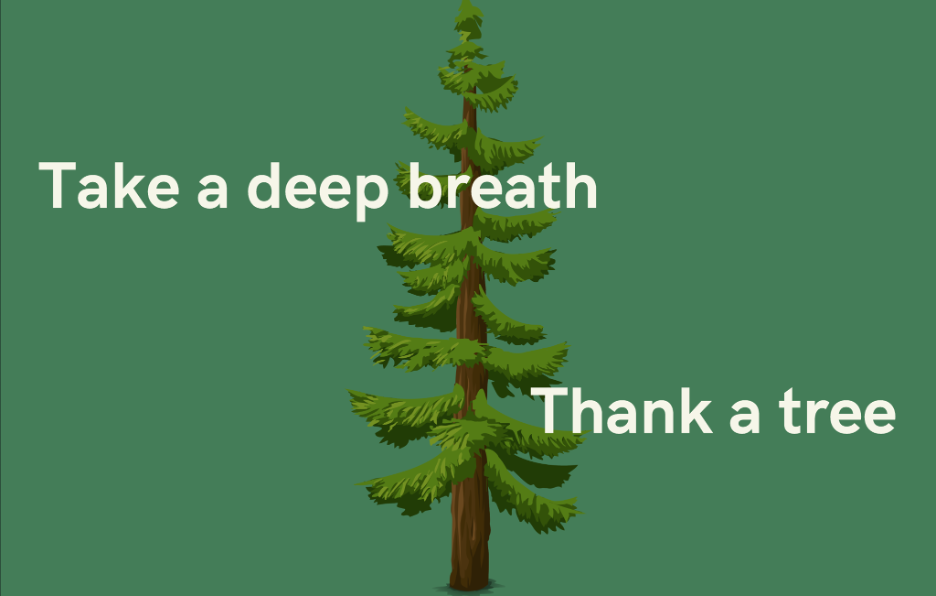
One of the cards Mylea uses to guide solo walks for participants.
Solo Walks with School Overnight Program Students
When I introduced Solo Walks to my School Overnight students as a grad student, I prefaced that this is the time they have to themselves, after a week spent surrounded by classmates in a new environment. It is a chance to recharge, notice, listen, and reflect. Cards with quotes, reflective prompts, and actions are laid out alongside one of IslandWood’s many lush trails. The cards may read– ‘hug this tree’, ‘touch this moss’, ‘how many shades of green do you see?’, ‘which way is your home?’, ‘what do you smell?’, ‘howl like a coyote’, ‘dance like no one is watching (nobody is!)’. Each participant walks alone with someone ahead and behind them, so they are never truly alone. Solo walkers are invited to go slow, asked to stop, and take time with each card.
As an SOP instructor and grad student at IslandWood, I saw the impact solo walks had on my students. They feel a sense of confidence after they’ve walked alone in nature. Solo walks are a time for participants to not be perceived. Throughout SOP students are experiencing near constant social time and stimulation and solo walks are a time for them to be silly and dance like no one is watching or howl like a coyote without fear of judgement or negative perception. Students arrive at the end of their solo walk feeling relaxed, refreshed, and eager to tell about their favorite card along the walk.
Solo Walks & IslandWood Graduate Project
With my co-teacher and friend, Theo, I dreamed of a wider vision for solo walks. A chance for them to be used by any educators, anywhere. We created a set of solo walk cards for our Climate Change Emotionality course at IslandWood which reflected on the impacts of climate change and climate anxiety. These cards included some of the classic sensory solo walk cards such as touching moss and hugging trees, but also included facts about the impacts of drought on Western Red Cedars. These cards focused also on place-attachment and gratitude. We asked participants to think of the important places in their life and add it to a community artifact about significant places. Our cards dug a little deeper than what we used with our 4th grade students and asked ‘what communities brought you to this place?’, ‘what can you give to this place?’, ‘what does this place give to you?’ Interspersed with these questions were quotations that were significant to us by authors such as Joy Harjo, Mary Oliver, Ross Gay, and Linda Hogan.
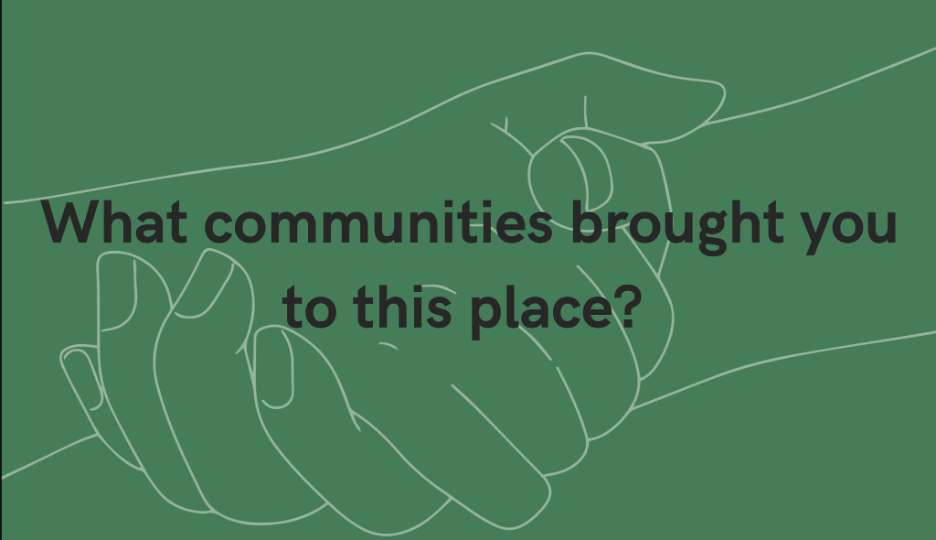
A question on a new card Mylea developed with another grad student during their Climate Change Emotionality course at IslandWood.
Continuing research at the University of Washington on Solo Walks
Words are closely tied to memories and are tied to place. My family jokes that I learned to read by reading road signs. Even now, I catch myself reading any signs I pass out loud. My favorite signs to read are inscriptions on park benches. There is a bench placard at the top of a trail in Corvallis, Oregon that reads “The season of rain is coming, hold out your hand.” Those words will always be associated with that place to me, they allow me to vividly picture a place I once called home. My love for words and stories continued on during my time at IslandWood, wanting to find the perfect story book to read my students for the context of the day and sharing the grounding-in poems and excerpts that I keep in a folder on my phone. Most prevalently my love for words appeared in my solo walks, both with students and the one I designed for my culminating graduate studies project at the University of Washington.
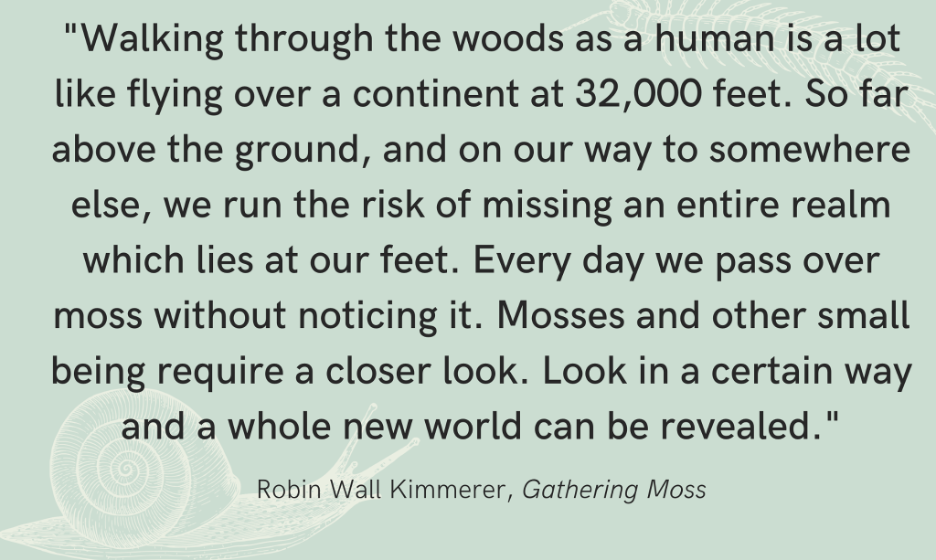
One of the quote cards Mylea uses to guide solo walks for participants.
I continued to use some of these cards in my culminating project at UW and envisioned this type of solo walk as trail interpretation. A set of cards that could be along any trail to remind people to slow down and take in their surroundings. I wanted to challenge the way that trail interpretation looks now in informal learning settings (e.g botanic gardens, zoos, national parks) by presenting information to visitors and participants. Rather than telling visitors about the lands they walk, they would get to know the place themselves and build connections to it. I returned to IslandWood this winter as a Researcher in Residence, a new program dreamed to life by Dr. Déana Scipio and Dr. Priya Pugh. Members of the current graduate class walked my solo walk, added important places and thoughts to community artifacts, and sat down to provide feedback and tell me more about the ways solo walks are used in their own teaching practices. Ultimately, I dream of this version of a solo walk to be a semi-permanent installation alongside a trail where themes and quotations can be interchanged to different contexts and seasons. Readers and educators can make these at home for people in their lives, students, or themselves as a reminder to take a break and take a breath. A reminder we could all use these days!
If you haven’t already, subscribe to our newsletter to stay in the know about blog posts, news, and events!

